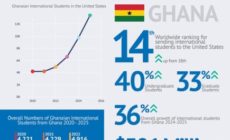It said the amount is also used in buying chemicals to purify and treat water that had been contaminated through open defecation.
Let’s talk shit
A Project Officer at the Environmental Health and Sanitation Directorate of the Ministry of Local Government and Rural Development (MLGRD), Mr Kweku Quansah, made this known at the launch of a project to combat open defecation through the use of visual arts.
The project, dubbed, “Let’s talk shit”, is spearheaded by Alliance Franciase, Accra, with support from the United Nations Children’s Emergency Fund (UNICEF).
Artists selected for the project would use various mediums of art including painting, sculpture, photography and video to put issues pertaining to open defecation to the public. The artists would also create dialogue with the communities through visual arts by exhibiting pieces of artwork in some selected communities.
They would also use various mediums to put across ways by which visual arts could be used to make significant contribution to social and public health issues as well as challenge social norms regarding open defecation.
Menace of open defecation
Mr Quansah said based on the average cost of a latrine, Ghana would require about GH¢11.7 billion, equivalent to US$ 3.0 billion in order to address challenges posed by insanitary conditions.
“This equates roughly to GH¢546 or US$140 per capita over a 10-year period, or GH¢54.6 that is US$ 14 per capita annually,” he said.
Additionally, he said, even though the investment requirements were huge when compared to current spending, Ghana would need to significantly increase investments in order to improve the situation.
That, he said, would not only provide for basic services, but would also produce benefits well beyond water and sanitation issues. He noted that, “investments in water and sanitation are in fact investments in health, education, the environment and poverty reduction”.
Mr Quansah said there was urgent need to reduce open defecation and eventually eliminate the practice. “I believe this is possible. We can surely achieve open defecation-free Ghana,” he said.
No shame
The UNICEF Country Representative in Ghana, Ms Susan Namondo Ngongi, said while the name of the project may sound shocking, the expection was for it to generate attention and initiate dialogue on the issues regarding poor sanitation habits.
Frown against it
The National Director of the Department of Community Development of the Ministry of Local Government and Rural Development, Mr Paul Avorka, said the government, with support from stakeholders, had over the years battled the issue of open defecation but without success.
He said Ghanaian culture found it unacceptable to defecate in the open and so it was necessary that people took note of the country’s traditions and frowned on such practices.
“Customarily, an adult should not expose his or her nakedness in the open and so where did we lose the plot? As creative artists let’s talk about shit to prick the conscience of our traditional authorities, media and everyone to do the proper thing,” he added.
The Project Manager of the “Let’s talk shit” initiative, Nana Osei Kwadwo, said proposals on the project would be received from artists and the best 20 out of the lot received would be selected.
Consequently, he said, there would be series of exhibitions that would take place at the Alliance Francaise in September this year and which would be followed by a tour to some selected regions where open defecation was pervasive to enable the artists to dialogue with members of the communities on the problem at hand.











 (Selorm) |
(Selorm) |  (Nana Kwesi)
(Nana Kwesi)